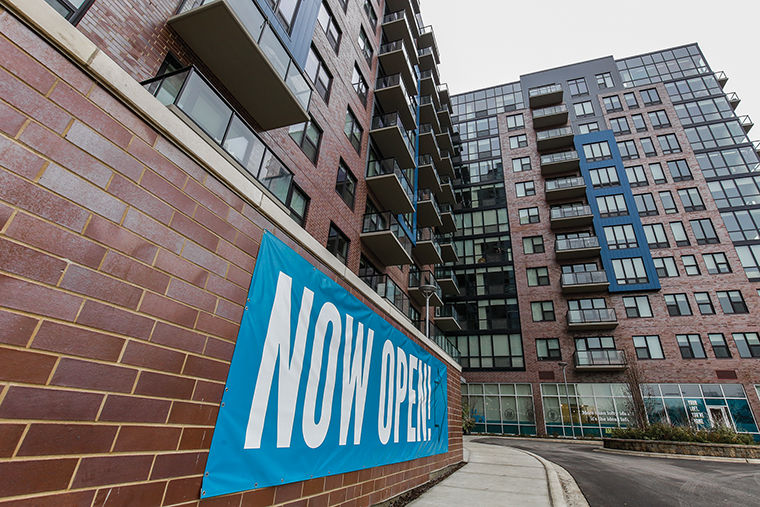Tech tenants could raise real estate prices in the South Loop
The area has seen an increase in newly developed housing in recent years.
January 26, 2015
Three new residential complexes being built in Chicago’s South Loop could turn the neighborhood into a hotspot for tech employees.
Google moved its headquarters to the Fulton Market Warehouse District in Chicago’s West Loop at the end of 2013, and other tech companies such as Orbitz, Uber and LinkedIn have followed suit. Instead of moving to San Francisco or Silicon Valley, California, Chicago companies have decided to stay put, and entrepreneurs like John Pytel, CEO of Conferences i/o, an interactive app for audiences at conferences, have decided to build their companies here.
“There was never any reason for us to go to California because we have everything we need here, thanks to 1871,” Pytel said, referring to the local startup.
Tech companies establishing themselves in Chicago could contribute to a rise in population, which calls for more residential real estate options.
An old parking garage is being torn down to build a 24-story apartment complex at the intersection of Clark and Harrison streets. AMLI Lofts is building a 469-unit apartment complex on 1000 S. Clark St. CMK Companies, a real estate company recently acquired a 5.1-acre parcel of land near the south the Chicago River that is expected to be used to build a new condominium.
Kyle Kamin, executive vice president of Chicago Business Real Estate, said the South Loop is a reasonable area for tech employees to move because it is less expensive than other downtown neighborhoods and is a short commute to and from work. Kamin has brokered real estate deals for major tech companies including Google, Yelp, CareerBuilder and Sittercity.
Kamin said tech companies are moving to Chicago because of its strong workforce. Potential employees in the city have distinct skills and areas of specialty, which gives tech companies in the area a competitive edge.
“Chicagoans can expand into more areas because they have a diversity of interests that can be enhanced with technological innovation,” Kamin said.
In their Spring 2014 issue, Planners Network, an organization that advocates for progressive planning, Manissa McCleave Maharawal, an adjunct professor at Baruch College in New York, wrote that the influx of tech employees who moved to the San Francisco Bay Area caused gentrification in the areas adjacent to public bus stops. As more tech employees moved to the area, real estate prices increased and the displaced low-income residents blamed tech companies.
Higher real estate prices forced many low-income residents, such as artists, teachers, hair stylists and craftsmen, to leave San Francisco. Many residents felt the tech employees were driving out the people who made the city what it is today, Maharawal said.
Residents banded together and protested against tech companies for moving into the area. Protests and rallies took place at bus stops where shuttles from Facebook and Apple would pick up local tech employees, Maharawal said.
Protesters called Facebook and Apple “gentrification and eviction technologies.” During protests and rallies, they plastered banners with this phrase in Google’s blue, red, green and yellow colors on the sides of shuttle buses.
Kamin said he does not think large-scale gentrification will happen in Chicago or the South Loop area. Although real estate prices could go up, he said the increase would not be as dramatic as it was in San Francisco because residents are not competing for limited real estate space.
Dennis McClendon, a member of the board of directors for South Loop Neighbors, said he is not worried about an increase in tech employees moving to the area because the South Loop is not a trendy neighborhood. He said the new apartment complexes being built on Clark and Harrison streets will probably be occupied by short-term residents like college students or recent graduates.
McClendon said a price increase would benefit homeowners because property values would also increase, giving them a better return on their investment.
Pytel said even if residents did get angry, he does not think more tech employees would be harmful to the South Loop.
“All it takes is one big success like Groupon or GrubHub to create hundreds or even thousands of jobs,” Pytel said.








